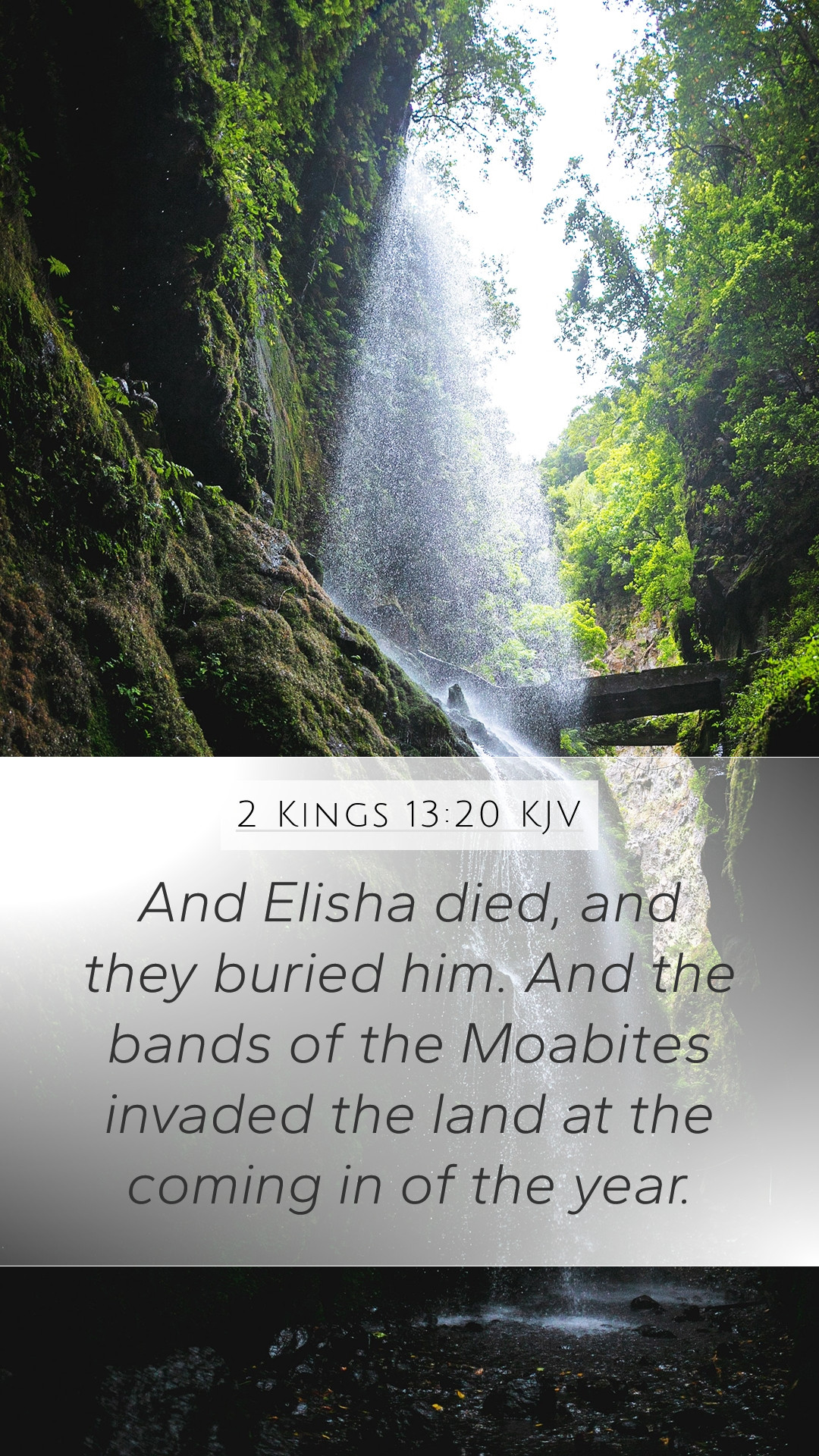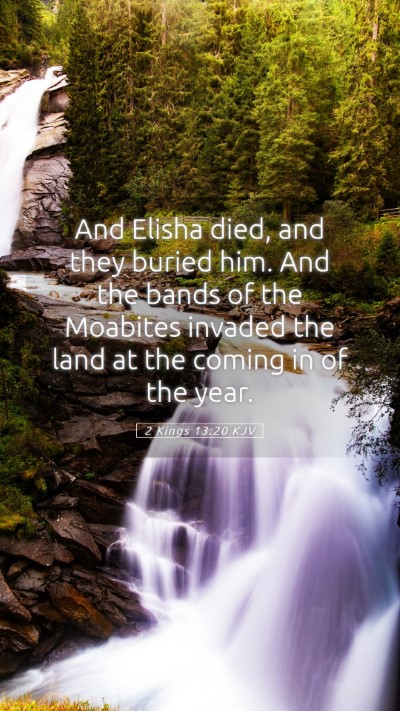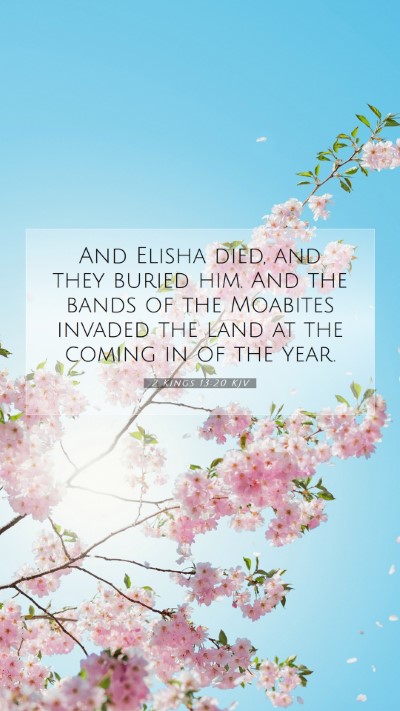Bible Verse Meaning and Commentary on 2 Kings 13:20
Verse Reference: 2 Kings 13:20 - "And Elisha died, and they buried him. And the bands of the Moabites invaded the land at the coming in of the year."
Understanding the Verse
This verse marks the death of the prophet Elisha, a significant figure in the Old Testament who succeeded Elijah. His passing signals not only the end of an era characterized by prophetic guidance and divine miracles but also highlights the ensuing chaos that often follows the departure of God's messengers.
Insights from Commentaries
-
Matthew Henry:
Henry emphasizes the impact of Elisha's death on Israel. He notes that Elisha had been a source of spiritual and physical protection, and his absence led to a vulnerability against foreign invasions, particularly from the Moabites. His commentary reflects on how the prophet's life was dedicated to God's service, and his death was a time for reflection on the importance of prophetic voices in maintaining divine favor.
-
Albert Barnes:
Barnes discusses the historical context, suggesting that the Moabite invasion was a consequence of Israel's spiritual decline. With Elisha gone, the people were left without their guide, illustrating how reliance on God and His messengers is crucial for national security and spiritual well-being. The commentary highlights the cyclical nature of Israel's faithfulness and rebellion toward God, culminating in such invasions during periods of disobedience.
-
Adam Clarke:
Clarke offers a detailed exegesis of the text, focusing on the significance of burial traditions in the Hebrew culture. He also mentions that Elisha's death had profound implications for the prophetic ministry, indicating a shift in God's dealings with Israel. Clarke points out that Elisha's contributions to the nation were immense and that his death serves as a solemn reminder of the need for leadership within the faith community.
Key Themes and Lessons
- The Transition of Leadership: Elisha’s death signifies a pivotal moment where Israel transitions from one epoch of prophetic leadership to another, emphasizing the importance of continuous guidance from God through His chosen prophets.
- The Consequences of Spiritual Decline: The invasion by Moab symbolizes the spiritual and moral decline occurring in Israel. The implications serve as a warning about the dangers of straying from divine commandments and the importance of maintaining robust spiritual leaders.
- The Role of Prophetic Voices: The passage speaks to the necessity of prophetic voices in society. Elisha’s life and ministry demonstrate the critical role that prophets play in calling a nation back to God.
Application to Daily Life
As readers engage with 2 Kings 13:20, they can reflect on the importance of spiritual leadership in their own lives. This verse encourages individuals and communities to seek guidance through prayer and fellowship, striving to remain attentive to God's messages and the counsel of wise leaders.
Cross References
- 2 Kings 2:14: Elisha's commissioning and the beginning of his prophetic ministry.
- 2 Kings 10:30-31: God's judgment against Israel and how leadership impacts Israel's fate.
- Isaiah 1:4: The consequences of Israel's rebellion and neglect of God's prophets.
Conclusion
In summary, 2 Kings 13:20 illustrates a poignant moment in Israel’s history marked by loss, the importance of spiritual leadership, and the consequences following the departure of such leaders. The insights drawn from esteemed commentaries enhance our understanding of the text, emphasizing themes relevant to both historical and modern contexts.


